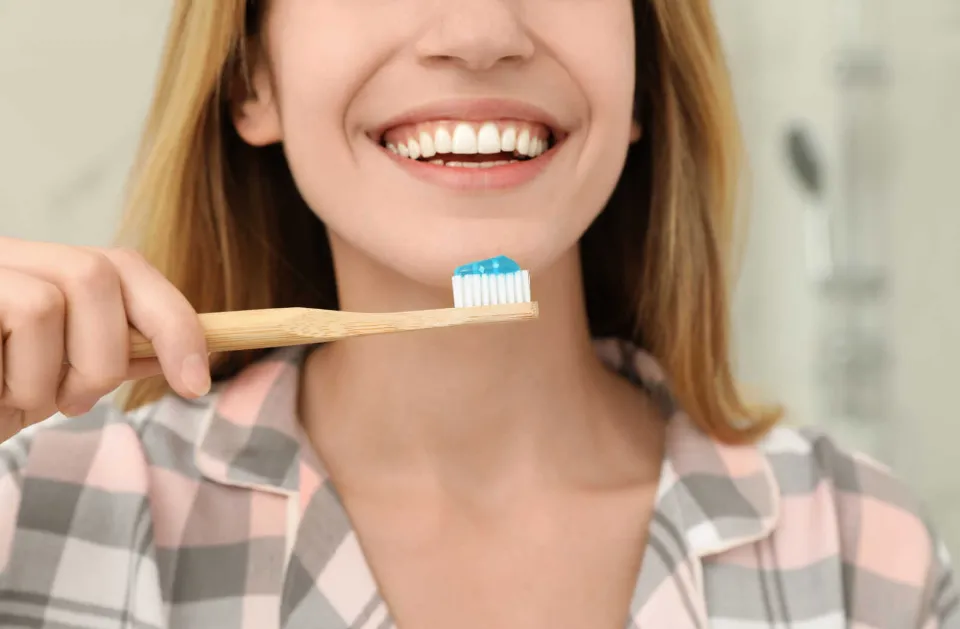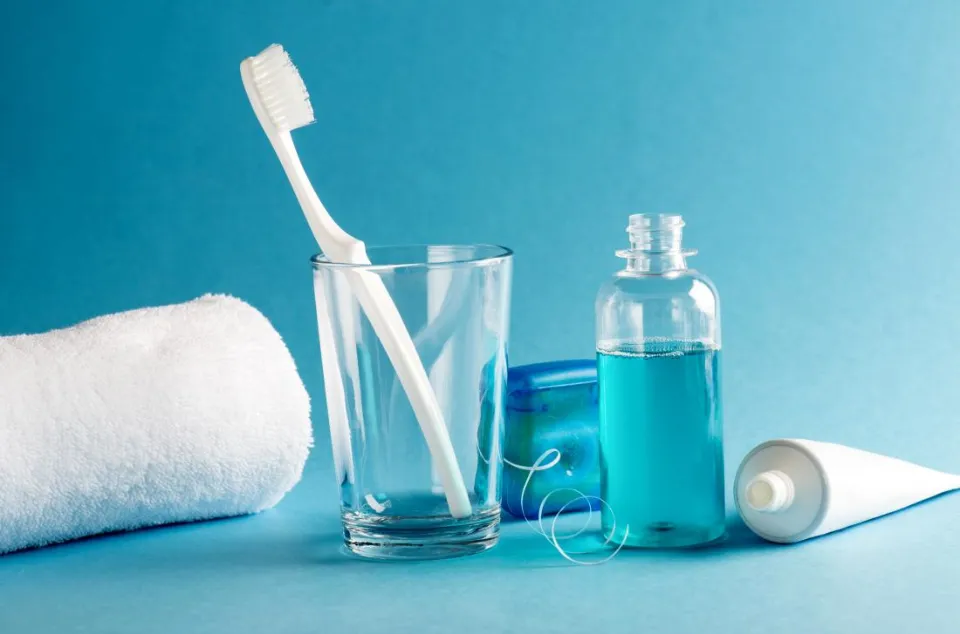Fluoride has many proven benefits for your teeth, but does fluoride whiten teeth?
In fact, fluoride itself is not a tooth-whitening agent, but it can help to strengthen enamel and prevent tooth decay, which can contribute to a brighter smile.
Continue reading to learn more if you’re considering using fluoride to whiten your teeth.
What is Fluoride?
Fluoride is a naturally occurring mineral found in soil, water, and various foods. It has been established that fluoride benefits oral health by strengthening tooth enamel and preventing tooth decay.
Plaque doesn’t build up and cause tooth decay or discoloration, so good oral hygiene practices like using fluoridated toothpaste can help.
Does Fluoride Whiten Teeth?
No. Fluoride does not whiten teeth.
Only bleaching makes teeth whiter. Fluoride does not, therefore, directly whiten teeth, but it does so indirectly.
You Might Also Like:
- Does Milk Whiten Teeth?
- Does Coconut Oil Whiten Teeth?
- Does Baking Soda Whiten Teeth?
- Do Strawberries Whiten Teeth?
- How Long Does It Take to Whiten Teeth?
How Does Fluoride Contribute to Teeth Whitening?

We know that regular use of fluoride strengthens your tooth enamel, which is the hard outermost layer that is white in color. Your teeth will appear whiter as your enamel grows thicker and stronger.
The middle layer of your teeth, called dentin, which has a faintly yellow hue, becomes visible if your enamel begins to erode.
For this reason, fluoride is an excellent way to prevent teeth discoloration. But if you want whiter teeth, you should think about scheduling a professional whitening procedure.
To lessen any potential sensitivity, your dentist may combine fluoride with your bleaching procedure.
How Long After Application Does It Take for Fluoride to Start Working?
Well, it depends on what type of fluoride whitening treatment you’re using. Regular dental care is the primary method of administering higher-strength fluoride.
Generally speaking, results from a single in-office fluoride and teeth whitening session can be seen right away.
However, daily at-home teeth whitening treatments are advised if you want a more gradual and long-lasting effect.
Related Post: Are Teeth Supposed to Be White?
How to Whiten Your Teeth?
There are numerous ways to get a whiter smile, but not all teeth-whitening techniques are created equal.
To avoid common side effects like tooth sensitivity and gum irritation, it is always best to consult with your dentist before beginning any whitening treatment.
Professional In-office Whitening
Under the care of your dentist, you can achieve a whiter, brighter smile in the most secure manner.
Your dentist’s office probably offers in-office teeth whitening even though treatments differ from clinic to clinic.
At-home Whitening Treatments
A wide variety of at-home whitening remedies, from whitening strips to brush-on gels and toothpastes, can be found in your neighborhood drugstore’s toothpaste section.
To assist in removing surface stains from your teeth, these products frequently include bleaching agents with a peroxide base.
You typically won’t get the same results from an at-home procedure as you would from professional teeth whitening procedures. To see results from most at-home treatments, you need several sessions.
The Bottom Line: Does Fluoride Whiten Teeth
You should always speak with your dentist before beginning any type of tooth whitening treatment to ensure the best whitening results and prevent tooth sensitivity.
Fluoride may not have specific teeth-whitening properties, using oral hygiene products that contain fluoride is a great way to prevent discolouration caused by plaque or tartar buildup and prevent tooth sensitivity during whitening treatments.
When you next visit the dental office, inquire about fluoride treatments.
Read More: How Often Should You Whiten Your Teeth?
FAQs
Does Fluoride Make Teeth Yellow?
Fluorosis, also known as yellow spots on the surface of the teeth, can be brought on by excessive fluoride exposure.
What Does Fluoride Do for Teeth?
The hard outer layer of the tooth, known as enamel, is strengthened by fluoride.
Is It Safe to Use Fluoride Toothpaste Everyday?
Too much fluoride can be harmful to one’s health, but the amounts found in toothpaste are typically safe if they are used as directed.




